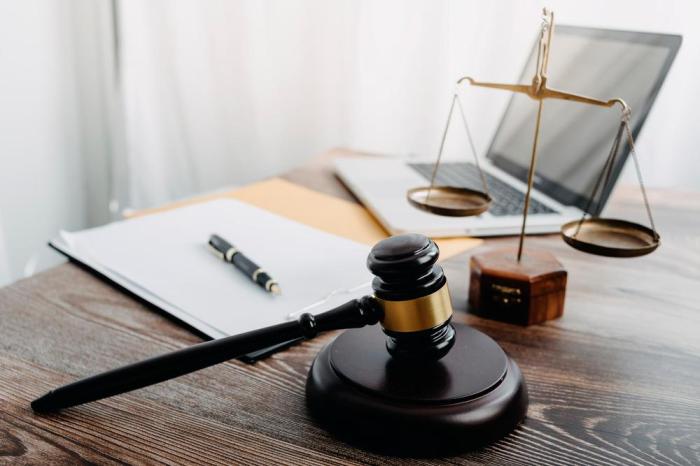Car accident lawsuit timeline – Filing a car accident lawsuit can be a complex and daunting process. To help you navigate the legal system and understand the timeline involved, this comprehensive guide will provide you with essential information on every step of the journey, from the statute of limitations to trial and compensation.
From gathering evidence to negotiating with insurance companies and understanding the intricacies of the trial process, this guide will equip you with the knowledge you need to make informed decisions and protect your rights.
Navigating the legal complexities of a car accident can be daunting. Understanding the Car accident lawsuit timeline is crucial, but it’s equally important to seek professional guidance.
Auto accident legal assistance can provide invaluable support throughout the process, ensuring your rights are protected and maximizing your compensation.
By working with an experienced attorney, you can navigate the legal system confidently, ensuring a favorable outcome for your case.
Car Accident Lawsuit Timeline

Being involved in a car accident can be a traumatic and overwhelming experience. In addition to dealing with physical injuries and property damage, you may also be facing legal issues. If you are considering filing a car accident lawsuit, it is important to understand the legal process and timeline involved.
1. Statute of Limitations
The statute of limitations is a law that sets a deadline for filing a lawsuit. The statute of limitations for car accident lawsuits varies from state to state. In most states, the statute of limitations is two years from the date of the accident.
This means that you must file your lawsuit within two years of the accident or you will lose your right to sue.
There are some exceptions to the statute of limitations. For example, if you were injured in the accident and were not able to file a lawsuit within two years, you may be able to file a late claim. However, it is important to speak to an attorney as soon as possible to discuss your options.
2. Gathering Evidence
After a car accident, it is important to gather as much evidence as possible. This evidence can help you prove your case and get you the compensation you deserve.
- Police report
- Medical records
- Witness statements
- Photos of the accident scene
- Insurance information
3. Negotiating with Insurance Companies
After you have gathered evidence, you will need to negotiate with the insurance companies involved in the accident. The insurance companies will try to settle your claim for as little money as possible.
It is important to have an attorney represent you during this process so that you can get a fair settlement.
There are several factors that will affect the amount of your settlement, including the severity of your injuries, the amount of property damage, and the liability of the other driver.
4. Trial Process
If you are unable to reach a settlement with the insurance companies, you may need to file a lawsuit and go to trial. The trial process can be long and expensive, but it may be necessary to get the compensation you deserve.
During the trial, you will have the opportunity to present your evidence and argue your case. The jury will then decide whether or not you are entitled to compensation.
5. Damages and Compensation
If you are successful in your lawsuit, you may be awarded damages. Damages are a monetary award that is designed to compensate you for your losses. There are two types of damages: compensatory damages and punitive damages.
- Compensatory damages are designed to compensate you for your economic and non-economic losses. Economic losses include medical expenses, lost wages, and property damage. Non-economic losses include pain and suffering, emotional distress, and loss of enjoyment of life.
- Punitive damages are designed to punish the defendant for their conduct. Punitive damages are only awarded in cases where the defendant’s conduct was particularly egregious.
6. Attorney Fees and Costs

If you hire an attorney to represent you in your car accident lawsuit, you will be responsible for paying their fees and costs. Attorney fees are typically based on a contingency fee arrangement. This means that you will only pay your attorney if you win your case.
Navigating the aftermath of a car accident can be overwhelming. If you find yourself in this situation, understanding the timeline of a car accident lawsuit can help you plan your next steps.
While it’s crucial to seek legal counsel to guide you through the process, filing a car accident lawsuit can empower you to pursue compensation for your injuries and damages.
The lawsuit timeline typically involves gathering evidence, filing a complaint, engaging in discovery, and ultimately resolving the case through settlement or trial.
The amount of attorney fees you will pay will depend on several factors, including the complexity of your case, the amount of time your attorney spends on your case, and the outcome of your case.
Closing Summary
Navigating a car accident lawsuit can be a challenging endeavor, but by understanding the timeline and legal processes involved, you can increase your chances of a successful outcome.
Remember, it’s crucial to seek legal advice from an experienced attorney who can guide you through the complexities of the legal system and advocate for your best interests.
Popular Questions
How long do I have to file a car accident lawsuit?
The statute of limitations for filing a car accident lawsuit varies by state. It’s essential to check the specific laws in your jurisdiction to ensure you don’t miss the deadline.
What evidence should I gather after a car accident?
Filing a car accident lawsuit can be a complex process, but it’s important to act quickly to protect your rights. Immediately after a crash, follow the steps outlined in our guide Steps to take after a car crash.
This includes exchanging information with the other driver, taking photos, and seeking medical attention.
The sooner you begin the legal process, the better your chances of a successful outcome.
Collect as much evidence as possible, including police reports, medical records, witness statements, and photos of the accident scene and damage to vehicles.
How do I negotiate with insurance companies?
Be prepared to negotiate with insurance companies to obtain a fair settlement. Consider consulting with an attorney to ensure you get the compensation you deserve.




